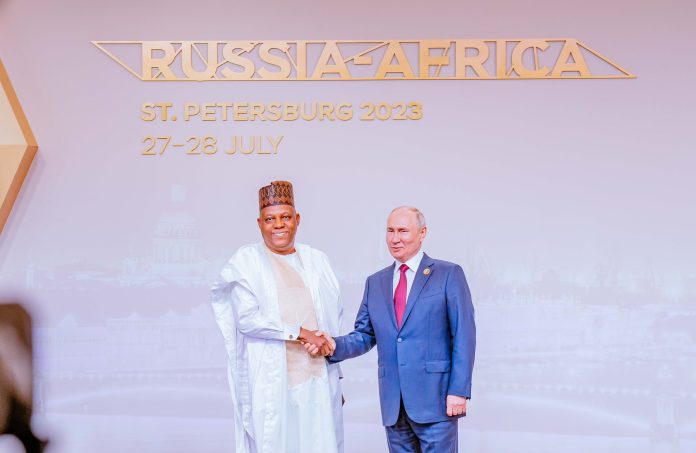In a significant move that underscores shifting global trade dynamics, Nigeria, Ethiopia, and Tunisia have been added to Russia’s official currency trading list. This development expands the number of countries on the list from 30 to 40, reinforcing Russia’s strategic push toward alternative financial partnerships amid ongoing Western sanctions.
The inclusion of these African nations, alongside other new entrants such as Laos and Mexico, is part of Moscow’s broader effort to bolster trade in national currencies. The expansion is also driven by the need to enhance liquidity, as Russian individuals and financial institutions have limited capacity to provide sufficient liquidity in foreign currencies.
Impact on Trade and Economic Relations
This decision is expected to strengthen bilateral trade flows between Russia and these newly added countries, supporting transactions estimated at $1.8 trillion. Furthermore, it provides a buffer for Russia’s $1.3 trillion economy, which continues to navigate the challenges posed by Western-imposed financial restrictions.
The move aligns with a growing global trend where countries seek alternatives to traditional dollar-dominated transactions. By expanding its currency trading partnerships, Russia aims to diversify its economic relationships, fostering a multipolar financial system that reduces dependence on Western-controlled monetary frameworks.
Implications for Nigeria and Other African Nations
For Nigeria, Ethiopia, and Tunisia, this development presents new economic opportunities, particularly in trade, investment, and financial cooperation with Russia. It could facilitate easier transactions in sectors such as energy, agriculture, and technology, potentially leading to deeper economic ties.
Nigeria, Africa’s largest economy, has been exploring ways to diversify its trade relationships beyond Western financial institutions, and this inclusion may provide an alternative channel for international transactions. Ethiopia and Tunisia, both emerging markets with strategic economic importance, could also leverage this opportunity to strengthen trade relations with Russia.
Geopolitical and Economic Considerations
As Western nations continue to impose sanctions on Russia, Moscow’s focus on expanding its financial alliances with Africa, Asia, and Latin America signifies a recalibration of global economic partnerships. The move is likely to accelerate discussions on de-dollarization and encourage alternative financial systems that reduce the dominance of Western financial institutions in global trade.
With trade flows expected to increase and economic relations deepening, the inclusion of Nigeria, Ethiopia, and Tunisia in Russia’s currency trading list marks a pivotal moment in international finance. As these nations navigate the evolving global economic landscape, their participation in Russia’s financial network could reshape trade partnerships in the years to come.




